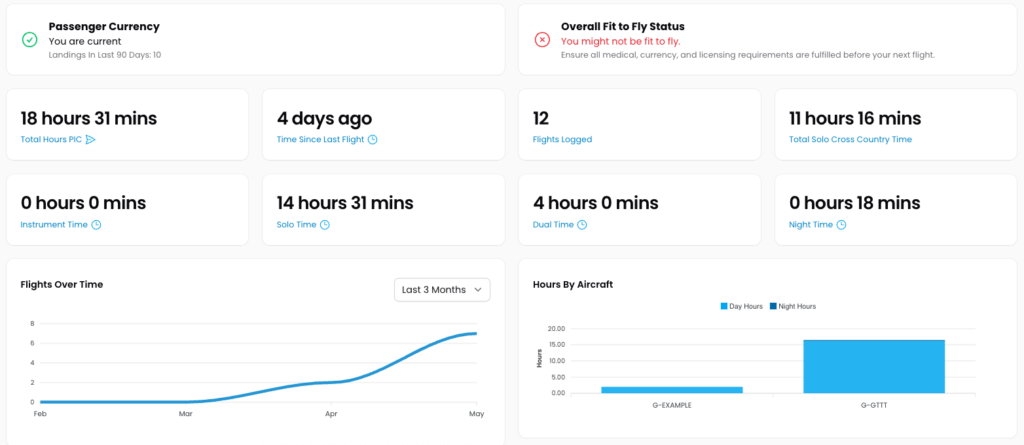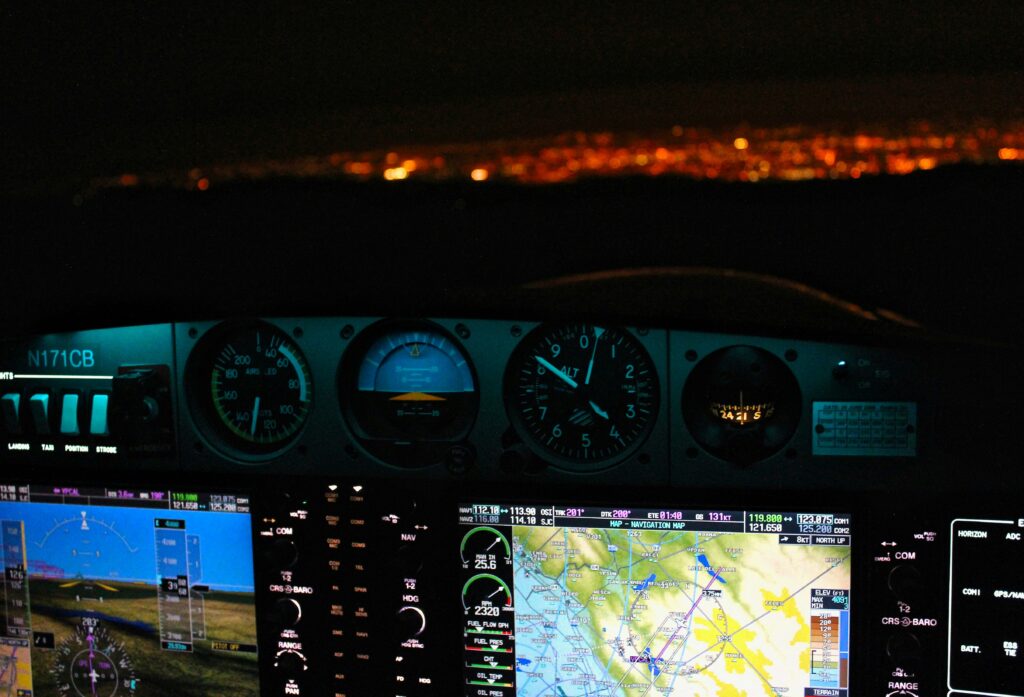One of the first decisions student pilots — and even seasoned ones — face is whether to use a paper or digital logbook to track flight time. While both are perfectly valid under CAA/FAA regulations, each has its own advantages and drawbacks depending on how you fly, what stage you’re at in your training, and how you like to stay organised.
In this article, we’ll explore the pros and cons of digital vs. paper logbooks, so you can make the right call for your flying journey.

Paper Logbooks: The Traditional Way
The trusty paper logbook has been around for decades. There’s something nostalgic and satisfying about writing down each flight by hand, flipping through the pages, and seeing your progress grow.
Pros
- No tech required
- Tangible
Cons
- Manual calculations — totals can get messy
- Easy to damage or lose (coffee spills, anyone?)
- Hard to search — flipping pages isn’t efficient
- No backups unless you copy it

Digital Logbooks: The Modern Alternative
Digital pilot logbooks are becoming more common thanks to apps and web platforms that streamline the entire process. You can enter flights, total your time automatically, get currency alerts, and export clean reports for checkrides or insurance.
Pros
- Automatic totals and filters (night time, cross-country, instrument, etc.)
- Cloud backup — no risk of permanent loss
- Professional exports
- Available anywhere – wherever you are you can access your records
Cons
- Requires a device and internet
- Can feel less “personal”
Digital logbooks like DigiPlog are especially helpful for pilots logging a lot of time, transitioning between types of flying, or preparing for checkrides/ skills tests where clear documentation matters.
So, Which Should You Choose?
If you’re a student pilot:
Start with what’s easiest — paper is fine, but a digital logbook can help build good habits early. If you ever lose your paper logbook, you’ll wish you had a backup.
If you’re logging lots of time:
Digital will save you time, reduce errors, and make totals and exports effortless.

Final Thoughts
The best logbook is the one that works for you. Whether you’re flipping pages or tapping a screen, what matters most is that your records are accurate, up to date, and safe.
Thinking about trying digital? DigiPlog offers a clean, beginner-friendly interface built specifically with student pilots and private flyers in mind. Try it free and see if it fits your flying style.


Captain, take charge of your logbook